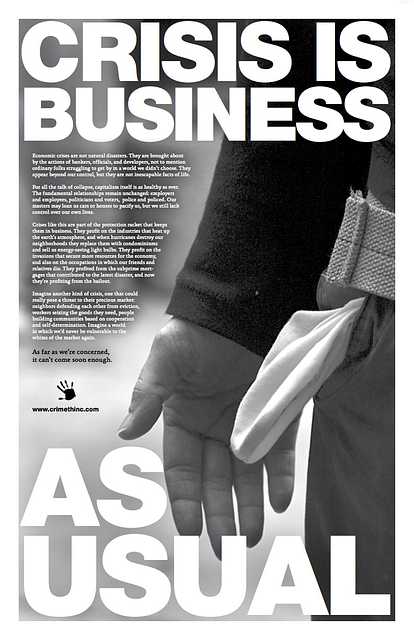Economic crises are not natural disasters. They are brought about by the actions of bankers, officials, and developers, not to mention ordinary folks struggling to get by in a world we didn’t choose. They appear beyond our control, but they are not inescapable facts of life.
For all the talk of collapse, capitalism itself is as healthy as ever. The fundamental relationships remain unchanged: employers and employees, politicians and voters, police and policed. Our masters may loan us cars or houses to pacify us, but we still lack control over our own lives.
Crises like this are part of the protection racket that keeps them in business. They profit on the industries that heat up the earth’s atmosphere, and when hurricanes destroy our neighborhoods they replace them with condominiums and sell us energy-saving light bulbs. They profit on the invasions that secure more resources for the economy, and also on the occupations in which our friends and relatives die. They profited from the subprime mortgages that contributed to the latest disaster, and now they’re profiting from the bailout.
Imagine another kind of crisis, one that could really pose a threat to their precious market: neighbors defending each other from eviction, workers seizing the goods they need, people building communities based on cooperation and self-determination. Imagine a world in which we’d never be vulnerable to the whims of the market again.
As far as we’re concerned, it can’t come soon enough.
